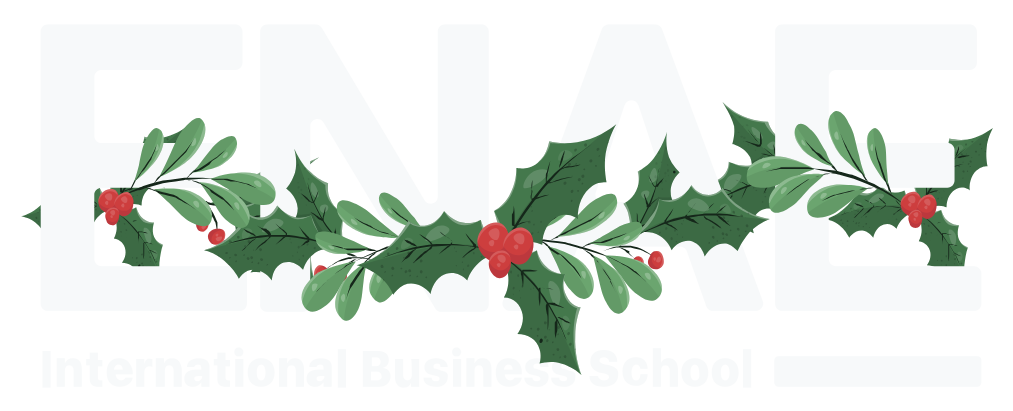Doing Business in Specifics Markets
In a global economic context where country situations are highly relevant and dynamic, this programme is designed to equip you with the skills needed to succeed in specific markets. As companies seek to expand globally, understanding the particularities of each market becomes crucial.
This course will immerse you in detailed analysis of diverse markets, giving you practical insights to address challenges and capitalise on opportunities. From entry strategies to cultural adaptation, you will explore how to effectively approach each market.
Discover the key modules and concepts
DOING BUSIENSS IN ASIAN MARKET
ASIA ENVIROMENT FOR BUSINESS:
· Quick view.
· Sectors.
· Consumers.
· Culture doing.
China:
· Key facts of the market.
· Business opportunities in the market.
· Strategy: business models & access to the market.
· Profiles of customers / donsumers. Negotiation.
· Practical information.
Japan.
· Key facts of the market.
· Business opportunities in the market.
· Strategy: business models & access to the market.
· Profiles of customers / consumers. Negotiation.
· Practical information.
India:
· Key facts of the market.
· Business opportunities in the market.
· Strategy: business models & access to the market.
· Profiles of customers / consumers. Negotiation.
· Practical information.
ASEAN (MALAYSIA, VIETNAM, INDONESIA, PHILIIPINES):
· Key facts of the market.
· Business opportunities in the market.
· Profiles of customers / consumers. Negotiation.
· Practical information.
DOING BUSIENSS AND ARAB MARKETS (Morocco, Algeria, Egypt Saudi Arabia)
- Key facts of the market.
- Business opportunities in the market.
- Strategy: business models & access to the market.
- Profiles of customers / consumers. Negotiation.
- Practical information.
DOING BUSINESS IN LATIN AND NORTH AMERICAN MARKETS
- American countries view of business:
· Quick view.
· Sectors.
· Consumers.
· Culture.
- North America:
· Key facts of the market.
· Business opportunities in the market.
· Strategy: business models & access to the market.
· Profiles of customers / consumers. Negotiation.
· Practical information.
- Latin America:
· Key facts of the market.
· Business opportunities in the market.
· Strategy: business models & access to the market.
· Profiles of customers / consumers. Negotiation.
· Practical information.
SOUTHERN AFRICAN AND ARAB MARKETS
- Southern african and western arab countries view of business.
- Southern Africa:
· Key facts of the market.
· Business opportunities in the market.
· Strategy: business models & access to the market.
· Profiles of customers / consumers. Negotiation.
· Practical information.
- Saudi Arabia and gulf countries:
· Key facts of the market.
· Business opportunities in the market.
· Strategy: business models & access to the market.
· Profiles of customers / consumers. Negotiation.
· Practical information.
admission process






Course description
This Doing Business in Specific Markets course gives you a competitive edge in the complex world of international business. Specialising in specific markets is at the heart of our programme, giving you an in-depth analysis of particular markets and equipping you with essential knowledge to understand their unique dynamics and challenges.
By joining our course, you will address everything from entry strategies to cultural considerations in a comprehensive way, giving you a complete preparation to tackle any specific market with confidence and success.
We approach learning in a practical way, using real cases and current business situations to develop skills applicable to real-world scenarios. Upon completion you will leave equipped with solid knowledge and strategic skills that will make you stand out in the global business environment.
Objetives
By the end of this course, you will understand:
- How to analyze the market from the economic, business environment and culture perspective.
- An overview of how to do business in several markets.
- The steps to analyze a market entry in a foreign country.
- The most suitable market entry options for each market.
- How to plan your meetings with foreign partners considering their culture, language and social norms for business. • How to detect market opportunities in the markets.
- How to build successful business relations in different kind of markets.
Methodology
ENAE Business School employs a Learning by doing methodology, which combines the presentation of concepts with practical application through real business cases. Teamwork is encouraged to achieve the integration of participants, improving the resolution of cases through the diversity of perspectives, opinions and experiences. Learning comes not only from the trainers, but also from the professional experiences shared among peers.
Meet our Faculty
Our exclusive “Learn by doing” method, allows our staff to track student progress more effectively which help them to identify a student's strengths, weaknesses and requirements. Better communication takes place through our hybrid learning methodology, as students can use our different digital platforms to connect and stay in touch with teachers and peers.















